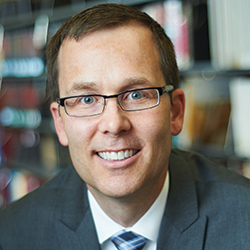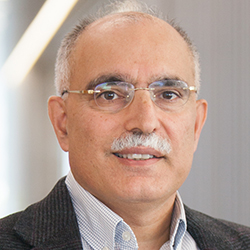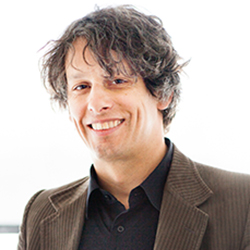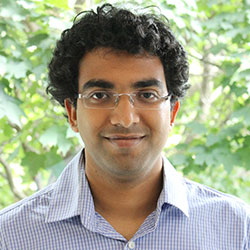Exploring the Intersection of Computer Science and Law
The emerging field of CS+Law is exploring the common foundations and bidirectional relationship between CS and law
Transformational technologies like artificial intelligence and machine learning profoundly impact the legal landscape, both in terms of how computation is changing legal systems and law practice and how law governs technology.
CS and law share common foundations, such as formalized processes, formalized systems of proof, interpretation of written instructions and descriptions, methods for detecting and resolving errors, formalized information flows, and self-referential structures. Thus, interdisciplinary study of the science at the intersection the two fields contributes to fundamental research in each area.
Computer science + law (CS+Law) unites researchers to build new theoretical, methodological, and translational frameworks to address increasingly pressing societal challenges, such as privacy, fairness, surveillance, cryptography and information security, multiparty computation, digital copyright, content moderation, and intellectual property.

“Collaborating with Dan Linna on research initiatives in CS+Law has been one of the most intellectually stimulating experiences I’ve had in the past decade,” said Jason Hartline, professor of computer science at the McCormick School of Engineering. “The connections between the fields are broad but incredibly underdeveloped.”

“New technologies are creating the need to adapt law, and in turn the practice of law is being impacted by the increasing use of technology,” Khuller said.
Data Science and Law
The Institute for Data, Econometrics, Algorithms, and Learning (IDEAL), a National Science Foundation Harnessing the Data Revolution: Transdisciplinary Research in Principles of Data Science Phase I (2019-2022) and Phase II (2022-2027) project, advances the theoretical foundations of data science through a multi-institution, multidisciplinary collaboration among investigators in computer science, economics, electrical engineering, law, mathematics, operations research, and statistics.
The institute’s research focus centers around interdisciplinary topics that intersect legal and policy issues, including deep learning and optimization, reinforcement learning, data science with strategic agents, trustworthy and reliable data science, and interpretability, privacy, and fairness.
As co-directors of IDEAL Phase I, Hartline and Aravindan Vijayaraghavan, associate professor of computer science and (by courtesy) industrial engineering and management sciences at Northwestern Engineering, introduced thematically focused “special quarters” to foster interdisciplinary, inter-institute collaborative research, such as the spring 2021 Special Quarter on Data Science and Law Hartline co-organized with Linna.
During the special quarter’s graduate seminar, the Science of Law and Computation, taught by Hartline and Linna, PhD students in computer science presented curated papers connecting both fields. Students also completed a preliminary study on a wide range of topics, including a learning theory for common law and definitions for learning algorithms to provably prevent tacit collusion; three of these studies were further developed as research projects over the last year.

“The IDEAL Special Quarter on Data Science and Law was an opportunity to dig in and make progress on some of these tantalizing directions,” Hartline said. “The program was incredibly productive.”
The success of the Data Science and Law special quarter and ongoing research and partnerships it catalyzed contributed to the continuation of IDEAL into Phase II.

CS+Law Monthly Workshop
The CS+Law Monthly Workshop, launched during the Data Science and Law special quarter by Hartline and Linna, continues its growth with an international membership of faculty, postdocs, and graduate students. The goal of the special interest group is to create a forum for exchanging ideas in a collegial environment that promotes building community, collaboration, and research that helps to further develop CS+Law as a field.
Steering committee members include Hartline, Linna, Ran Canetti (Boston University), Aloni Cohen (University of Chicago), Daniel Greenwood (Massachusetts Institute of Technology), James Grimmelmann (Cornell Tech), Pamela Samuelson (University of California, Berkeley), John Villasenor (University of California, Los Angeles), Rebecca Wexler (University of California, Berkeley), and Christopher Yoo (University of Pennsylvania).
The monthly virtual events center around a technical program organized by rotating hosts. The next workshop, organized by Hartline and Linna, is scheduled for September 23.
ACM Symposium on Computer Science and Law
Two ongoing research projects that started as preliminary studies in the Science of Law and Computation graduate seminar were accepted for publication in the 2nd Association for Computing Machinery (ACM) Symposium on Computer Science and Law:
- “Algorithmic Learning Foundations for Common Law” – Hartline; Linna; Liren Shan, a fourth-year PhD student in the Northwestern CS Theory Group, advised by professor of computer science Konstantin Makarychev; and Alex Tang, PhD candidate in the Northwestern CS Theory Group advised by Vijayaraghavan.
- “Classification Protocols with Minimal Disclosure” – Jinshuo Dong, IDEAL postdoctoral fellow; Hartline, and Vijayaraghavan.
Several additional papers accepted to the symposium are co-authored by CS+Law Monthly Workshop steering committee members.
Law + Computation Conference
In February 2021, the Law and Technology Initiative and the Journal of Technology and Intellectual Property (JTIP) hosted an interdisciplinary CS+Law academic virtual symposium organized by Linna, Hartline, Khuller, and Daniel B. Rodriguez, Harold Washington Professor of Law and former dean of Northwestern’s Pritzker School of Law. People from more than 65 countries registered and more than 500 attended the symposium “Law + Computation: An Algorithm for the Rule of Law and Justice?” and nearly 100 attended the research workshop. Northwestern will host the next Law + Computation conference in the spring of 2023.
“It is exciting to see strong international interest in CS+Law,” Linna said. “Interdisciplinary challenges regarding the impact and regulation of computational technologies, guiding the development of technologies applied to law practice, legal systems, and the law, and scaling access to justice transcend borders. Law and computation research, development, and instruction can contribute to improving the rule of law and justice around the globe.”
CS+Law courses
In addition to the IDEAL graduate seminar, courses at the intersection of computer science and law have been developed recently. The COMP_SCI 397, 497: Innovation Lab: Building Technologies for the Law course, co-taught by Linna and Northwestern Engineering’s Kristian Hammond, Bill and Cathy Osborn Professor of Computer Science, immerses multidisciplinary student teams in a collaborative effort to develop prototype technology solutions for legal services delivery problems posed by external client partners.
Co-developed and co-taught by Linna and Villasenor, the COMP_SCI 295, 496: Introduction to Law and Digital Technologies course explores the legal implications of the contemporary technology landscape, including the growth of artificial intelligence, the ecosystem for creating and disseminating digital information, and the challenges of ensuring digital privacy and algorithm equity.
The MSAI 448: Law and the Governance of Artificial Intelligence course, developed and taught by Linna and part of the Northwestern Engineering Master of Science in Artificial Intelligence program, is an introduction for engineers to the legal, regulatory, ethical, and policy questions raised by advancements in artificial intelligence.
“These courses aim to do more than simply teach computer science students about the law,” Linna said. “We invite students to engage at the CS+Law intersection and contribute to solving important problems in society. Success in the emerging field of CS+Law requires a partnership between the disciplines. That’s what we’re working to build.”
